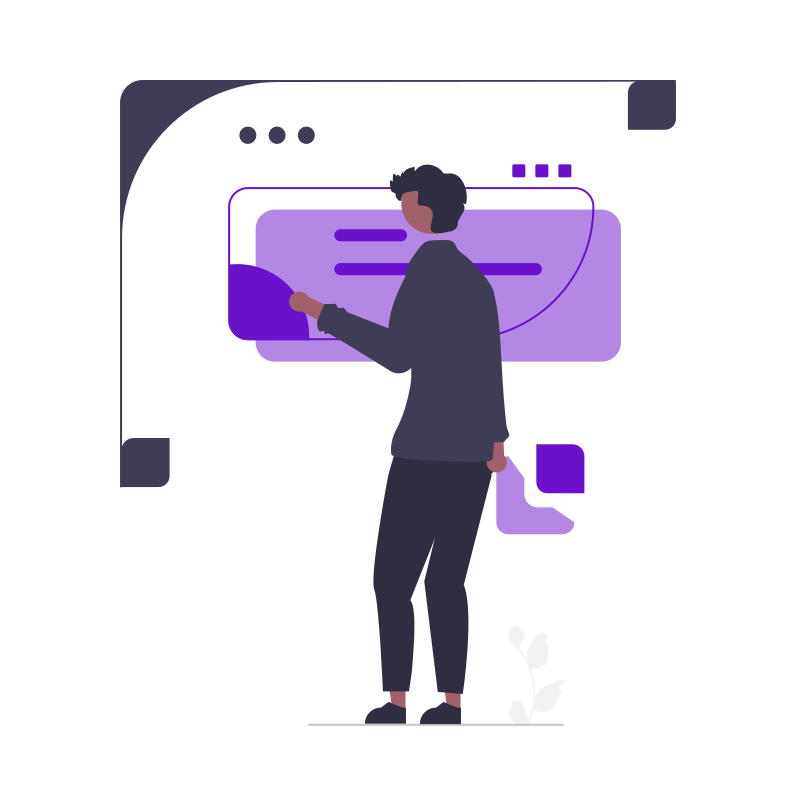In today’s competitive digital landscape, website personalization has become an essential strategy for B2B companies. What was once considered a secondary tactic is now a primary driver of success. Modern B2B buyers expect digital experiences tailored to their specific needs, preferences, and challenges. By embracing website personalization, B2B companies can improve engagement, generate higher-quality leads, and boost conversion rates. This blog explores the fundamental reasons why personalization is no longer optional in B2B and how it can transform marketing outcomes.
The Rise of Personalization in B2B Marketing
B2B buyers now complete most of their research and decision-making online before engaging with sales teams. As a result, your website is often the first—and most critical—touchpoint with potential customers. Personalized web experiences ensure that visitors encounter content relevant to their specific industry, role, or problem, making it easier for them to see the value in your product or service.
A Salesforce report on marketing trends highlights that 80% of business buyers expect companies to offer personalized engagement based on their previous interactions and behaviors. The demand for personalized experiences continues to rise as digital engagement becomes a cornerstone of B2B purchasing.
Key Benefits of Website Personalization in B2B
1. Enhanced Engagement and User Experience
Website personalization allows B2B companies to improve user experience by displaying tailored content that resonates with the visitor’s unique needs. Instead of generic messaging, visitors see content that’s directly relevant to their interests—whether it’s industry-specific case studies, product demos, or whitepapers.
Personalized websites create a frictionless user experience. Visitors don’t need to search through irrelevant content; instead, they are met with information that speaks directly to their challenges. This drives longer site visits, lowers bounce rates, and encourages deeper exploration of your offerings.
2. Improved Lead Generation
Personalization helps businesses generate higher-quality leads by guiding visitors through the sales funnel with tailored calls to action (CTAs) based on their behavior. A first-time visitor might be prompted to download an eBook, while a returning user could be encouraged to schedule a product demo. This data-driven approach increases the likelihood of converting site visitors into leads.
HubSpot found that personalized CTAs convert visitors 202% better than generic ones. By aligning CTAs with the visitor’s interests and journey stage, B2B companies can increase both the quantity and quality of leads.
3. Higher Conversion Rates
Personalized web experiences significantly boost conversion rates by delivering relevant content that addresses the visitor’s specific pain points. When content speaks directly to a prospect’s needs, they are more likely to take action—whether that’s filling out a form, requesting a demo, or making a purchase.
A McKinsey study on personalization reports that companies leveraging personalization across the buyer journey see conversion rate improvements of up to 20%. Personalized content reduces friction and increases the chances that visitors will become paying customers.
The Role of AI and Machine Learning in Personalization
Artificial intelligence (AI) and machine learning are the backbone of modern website personalization. These technologies analyze user behavior in real time, allowing websites to adapt dynamically to each visitor’s needs. AI-powered personalization helps deliver tailored recommendations based on a visitor’s browsing history, the content they engage with, and the actions they take on your site.
AI is especially valuable in B2B, where buyers often engage with websites multiple times before making a purchase decision. Personalized experiences help nurture these prospects over time by delivering the right content at the right moment, whether it’s a relevant blog post, a case study, or a product recommendation.
Personalization as Part of Broader Marketing Strategies
Website personalization also complements broader B2B marketing strategies like Account-Based Marketing (ABM) and content marketing. ABM, in particular, benefits from personalization, as it allows companies to create customized web experiences for their highest-value accounts. This can involve developing landing pages, messages, and offers tailored to the specific challenges of a target account, increasing the likelihood of engagement and conversion.
Content marketing, too, thrives with personalization. Personalized content recommendations ensure that users are continuously engaged with material relevant to their needs, improving content consumption rates and driving higher engagement with your brand.
Conclusion: Personalization as a Key to B2B Success
Personalization has become a key differentiator in the B2B space. As buyers demand more relevant and tailored digital experiences, companies that fail to prioritize website personalization risk losing competitive ground. By enhancing engagement, generating better-quality leads, and driving higher conversion rates, personalization helps B2B companies maximize the value of their website and improve overall marketing performance.
As AI and machine learning technologies continue to evolve, the potential for even deeper personalization grows. For B2B companies, investing in personalized web experiences today is essential to ensure success in the future. Personalization is not just a trend—it’s the future of B2B marketing, and it’s time to embrace it fully.


